SDG 6: RENT VAND OG SANITET
SDG 6.2:”Inden 2030 skal vandkvaliteten forbedres ved at reducere forurening, afskaffe affaldsdumping og minimere udslip af farlige kemikalier og materialer, og halvere andelen af ubehandlet spildevand og væsentligt øge genanvendelse og sikker genbrug globalt.”
SDG 12: ANSVARLIGT FORBRUG OG PRODUKTION
SDG 12.2: Inden 2030 skal der opnås en bæredygtig forvaltning og effektiv udnyttelse af naturressourcer.
SDG 12.4: vi vælger at arbejde med dette delmål på den måde at vi fortsat vil arbejde med en miljømæssig forsvarlig håndtering af kemikalier og affald i hele produktets livscyklus. Hertil vil vi indgå dialog med vores leverandører om kemikalier, spild og affald.
SDG 12.5:” Inden 2030 skal affaldsgenereringen væsentligt reduceres gennem forebyggelse, reduktion, genvinding og genbrug.”
SDG 17: PARTNERSKAB FOR HANDLING
Dette Verdensmål fortolker vi ordenes forstand. Vi skal løfte sammen for at nå i mål. Vi skal dele på tvært af landegrænser og industrier, så viden, teknologi deles i partnerskaber. Vi håber at Fabricaid agentur og Conscious Warrior kan hjælpe med at forene og tydeligegøre dette budskab.
We simply work by twelve principles symbolized and described here.

COLLABORATION AND MONITORING We do it by asking our business partners to commit and to implement the standards, processes, and requirements of this Code of Conduct in their own operations and to work with their suppliers and business partners to do the same.
We expect that all suppliers comply according to national legislation, regulations, and applicable practices and industry standards as relevant to their business. Establishing the required standards and processes requires both time and resources, and we will focus on our suppliers’ ability and willingness to demonstrate continuous improvements in meeting the requirements of this Code of Conduct. We feel confident that cooperation and transparent dialogue can result in a more sustainable and efficient partnership from which both parties will benefit. Open and transparent dialogue on the standards of this Code of Conduct is essential for our relationship with our suppliers. As part of this, suppliers are expected to inform about all sub-contractors. Hidden factories are not accepted. All suppliers are evaluated against the standard of the Code, and we prioritize those suppliers who are committed to demonstrating compliance and continued improvements. Suppliers are evaluated through different types of assessment, including self-assessments, internal assessments, and third-party assessments (announced and unannounced). We and appointed third-party auditors must be granted access to all facilities, including sub-contractors, as well as relevant documents and employees as requested. Grievances Suppliers must have a grievance mechanism in place allowing stakeholders to voice their concern if they find that operations of the supplier are adversely affecting human and labour rights, environment, including climate, anti-corruption, and animal welfare. The grievance mechanism should be appropriate to the size of the company and can take the form of a whistle-blower function, worker representation committee, etc. The grievance mechanism should be widely communicated, and accessible to all workers (including temporary workers), and managed in a confidential, unbiased, timely, and transparent manner. We trust that our suppliers will embrace the requirements of this Code of Conduct. In those instances where a supplier needs to improve certain procedures and practices, the supplier must be committed to do so within a specific timeframe. We believe that achieving good social and environmental standards is a process, and we are committed to working together with our suppliers in their efforts. If a supplier demonstrates lack of commitment and will to engage and improve on the standards of this Code of Conduct, we will not hesitate to terminate the business relationship. Furthermore, we seek to ensure the commitment of this Code of Conduct by personal visits and through 3rd party inspections and certified systems as BSCI and GRS. DUE DILIGENCE REQUIREMENTS We follow the International guidelines. Our key steps of the due diligence procedures include developing policies within all relevant impact areas. Such policies must be communicated to all employees and other relevant stakeholders. Procedures and management systems must be developed to ensure that policies are implemented and adhered to. The standards of the Code of Conduct are based on internationally agreed conventions, including but not limited to: the International Bill of Human Rights, the ILO’s Declaration of the Fundamental Principles and Rights at Work, the UN Guiding Principles on Business and Human Rights, the OECD Guidelines for Multinational Enterprises, the OECD Due Diligence Guidance for Responsible Business Conduct, the UN Convention Against Corruption, the Rio Declaration on Environment and Development; and the UN Global Compact’s 10 Principles. The standards of this Code of Conduct fall in below four sections, covering four thematic areas. Each section defines a set of specific standards within the four areas. While a due diligence process may identify further areas of concern, the following define standards on topics of relevance for processes in the production of textiles, garment, and accessories. The standards constitute minimum standards that all suppliers must meet. 1) Environment and climate 2) Animal welfare 3) Human and labour rights 4) Anti-corruption and Ethical business behaviour ENVIRONMENT- The European Union REACH Regulation (EC) No 1907/2006 Annex XVII and later amendments;
- The “substances of very high concern” (SVHC) i.e. the European Union REACH Regulation (EC) no. 1907/2006 Candidate List. Suppliers are requested to check the list on a regular basis as this list is continuously updated;
- Country specific regulations on export markets.
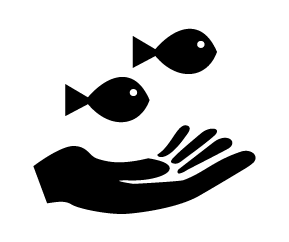 Suppliers are expected to ensure that materials used in the products derive from animals that have been treated according to all applicable regulations, conventions, and standards. The animals must be fed and treated with dignity and respect. No animal must deliberately be harmed nor exposed to pain in their lifespan.
Taking the lives of animals must always be conducted using the quickest and the least painful and non-traumatic method available, and approved by national and acknowledged veterinarians, and only conducted by trained personnel.
When using materials that derive from animals, the supplier should be ready to document the chain of custody of the product, e.g. via existing credible third-party certifications schemes such as the Responsible Down Standard (RDS) and the Responsible Wool Standard (RWS).
HUMAN RIGHTS AND LABOUR RIGHTS
Child labour and young workers
Suppliers are expected to ensure that materials used in the products derive from animals that have been treated according to all applicable regulations, conventions, and standards. The animals must be fed and treated with dignity and respect. No animal must deliberately be harmed nor exposed to pain in their lifespan.
Taking the lives of animals must always be conducted using the quickest and the least painful and non-traumatic method available, and approved by national and acknowledged veterinarians, and only conducted by trained personnel.
When using materials that derive from animals, the supplier should be ready to document the chain of custody of the product, e.g. via existing credible third-party certifications schemes such as the Responsible Down Standard (RDS) and the Responsible Wool Standard (RWS).
HUMAN RIGHTS AND LABOUR RIGHTS
Child labour and young workers
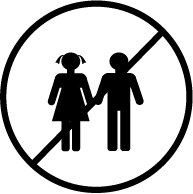 If child labour is detected at a facility, the supplier is responsible for developing, participating in, and contributing to policies and programmes that provide for transitional arrangements to enable the child to remain in quality education until no longer a child.
Forced labour
If child labour is detected at a facility, the supplier is responsible for developing, participating in, and contributing to policies and programmes that provide for transitional arrangements to enable the child to remain in quality education until no longer a child.
Forced labour
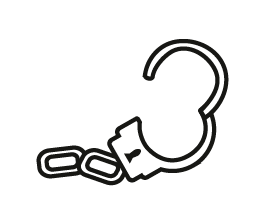 Employment must be freely chosen. Suppliers must not use or support any form of slavery and forced and bonded labour.
Employees must not be subject to recruitment fees or deposits, withholding of salary and benefits, lodging of personal documents by the employer, or forced to overtime.
Employment conditions
Employment must be freely chosen. Suppliers must not use or support any form of slavery and forced and bonded labour.
Employees must not be subject to recruitment fees or deposits, withholding of salary and benefits, lodging of personal documents by the employer, or forced to overtime.
Employment conditions
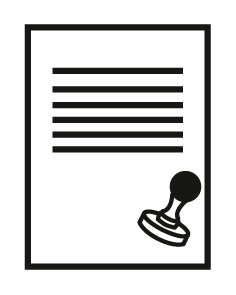 Obligations to employees under international conventions and social security laws and regulations arising from the regular employment relationship must not be avoided by using short-term contracts, such as contract labour and casual labour.
All employees, including temporary and casual workers, must have written and legal employment letters in a language they understand, specifying conditions of employment and termination.
Discrimination and harassment
Obligations to employees under international conventions and social security laws and regulations arising from the regular employment relationship must not be avoided by using short-term contracts, such as contract labour and casual labour.
All employees, including temporary and casual workers, must have written and legal employment letters in a language they understand, specifying conditions of employment and termination.
Discrimination and harassment
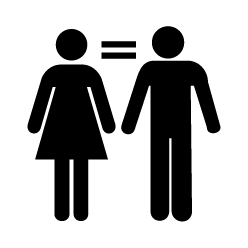 Suppliers must not engage in or support discrimination in recruitment and in employment. Decisions about hiring, compensation, access to training, advancement, discipline, termination or retirement must be solely based on the ability
to perform the job and not on the grounds of gender, marital or parental status, pregnancy, race, caste, colour, age, sexual orientation, religion, political opinion, union membership, function as worker representative, nationality,
ethnic origin, health status, or disability.
All workers must be treated with respect and dignity. Suppliers must prevent, not engage in nor support the use of bullying, intimidation, violence, threats of violence, corporal punishment, or physical, sexual, psychological and verbal harassment or abuse. Procedures to ensure punitive measures in cases of harassment and/or discrimination must be put in place.
Special measures must be put in place to protect female workers against gender-based violence and harassment in the workplace.
Freedom of association and collective bargaining
Suppliers must not engage in or support discrimination in recruitment and in employment. Decisions about hiring, compensation, access to training, advancement, discipline, termination or retirement must be solely based on the ability
to perform the job and not on the grounds of gender, marital or parental status, pregnancy, race, caste, colour, age, sexual orientation, religion, political opinion, union membership, function as worker representative, nationality,
ethnic origin, health status, or disability.
All workers must be treated with respect and dignity. Suppliers must prevent, not engage in nor support the use of bullying, intimidation, violence, threats of violence, corporal punishment, or physical, sexual, psychological and verbal harassment or abuse. Procedures to ensure punitive measures in cases of harassment and/or discrimination must be put in place.
Special measures must be put in place to protect female workers against gender-based violence and harassment in the workplace.
Freedom of association and collective bargaining
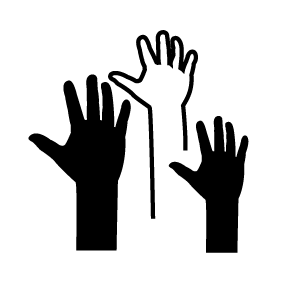 Suppliers must respect the rights of workers to join and organise associations of their own choosing and to bargain collectively with no interference or sanctions from employers. The supplier must implement mechanisms, such as worker participation committees, for resolving disputes, including employee grievances, and ensure effective communication with employees and their representatives.
If the rights to freedom of association and collective bargaining are restricted by national law, the supplier must allow workers to freely elect their own representatives, and alternative forms of worker representation must be supported.
Working hours and leave
Suppliers must respect the rights of workers to join and organise associations of their own choosing and to bargain collectively with no interference or sanctions from employers. The supplier must implement mechanisms, such as worker participation committees, for resolving disputes, including employee grievances, and ensure effective communication with employees and their representatives.
If the rights to freedom of association and collective bargaining are restricted by national law, the supplier must allow workers to freely elect their own representatives, and alternative forms of worker representation must be supported.
Working hours and leave
 Standard working hours must follow local regulations, collective bargaining agreements and industry standards, but must not exceed 48 hours per week, excluding overtime. All overtime must always be consensual and not requested on a regular basis. Weekly overtime must not exceed 12 hours.
Employees must be allowed a minimum of 1 day off per week and paid annual leave. Maternity leave, sick leave, and other types of leave must be provided to all employees in accordance with relevant local regulations.
Wages and benefits
Standard working hours must follow local regulations, collective bargaining agreements and industry standards, but must not exceed 48 hours per week, excluding overtime. All overtime must always be consensual and not requested on a regular basis. Weekly overtime must not exceed 12 hours.
Employees must be allowed a minimum of 1 day off per week and paid annual leave. Maternity leave, sick leave, and other types of leave must be provided to all employees in accordance with relevant local regulations.
Wages and benefits
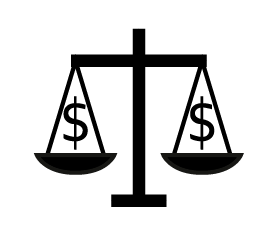 Wages for a standard working week must at a minimum meet the legal minimum wage, industry standards or negotiated wages, whichever is higher. Wages must be paid regularly and in a timely manner.
Suppliers should work towards providing a fair living wage, implying that wages are enough to meet the basic needs of employees and their families and provide some discretionary income. All overtime work must be compensated at a premium rate which is recommended to be no less than 125% of the regular pay rate.
Deductions are only permitted if and to the extent prescribed by law or fixed by a collective agreement. It may not be used as a disciplinary practice.
Occupational health and safety
Wages for a standard working week must at a minimum meet the legal minimum wage, industry standards or negotiated wages, whichever is higher. Wages must be paid regularly and in a timely manner.
Suppliers should work towards providing a fair living wage, implying that wages are enough to meet the basic needs of employees and their families and provide some discretionary income. All overtime work must be compensated at a premium rate which is recommended to be no less than 125% of the regular pay rate.
Deductions are only permitted if and to the extent prescribed by law or fixed by a collective agreement. It may not be used as a disciplinary practice.
Occupational health and safety
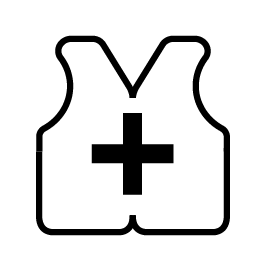 A safe and hygienic working environment must be provided for all employees.
To prevent accidents and injuries and promote a healthy and safe work environment, suppliers must – at a minimum – ensure that below listed initiatives are in place. The list is not exclusive but outlines the most critical aspects of a health and safety management system. Special measures must be put in place to ensure a gender-sensitive approach.
A safe and hygienic working environment must be provided for all employees.
To prevent accidents and injuries and promote a healthy and safe work environment, suppliers must – at a minimum – ensure that below listed initiatives are in place. The list is not exclusive but outlines the most critical aspects of a health and safety management system. Special measures must be put in place to ensure a gender-sensitive approach.
- Management representatives for occupational health and safety.
- Incident and risk management procedures proportionate to the type and size of business.
- Health and safety training on occupational risks. This includes training in firefighting and handling hazardous materials and chemicals.
- Provision of appropriate personal protective equipment (PPE), free of charge and in good condition. Training in the proper use of the PPE must be provided.
- All premises on site, including company-provided dormitories, restrooms, changing rooms and canteen, shall uphold appropriate standards on hygiene, health and safety. This includes adequate equipment for fire safety.
- Access to clean drinking water and access to appropriate sanitary facilities for employees at all times.
- Safe and healthy buildings. All relevant permits and certificates regarding building safety should be kept for review.
- Safe electrical installations installed and maintained by competent personnel.